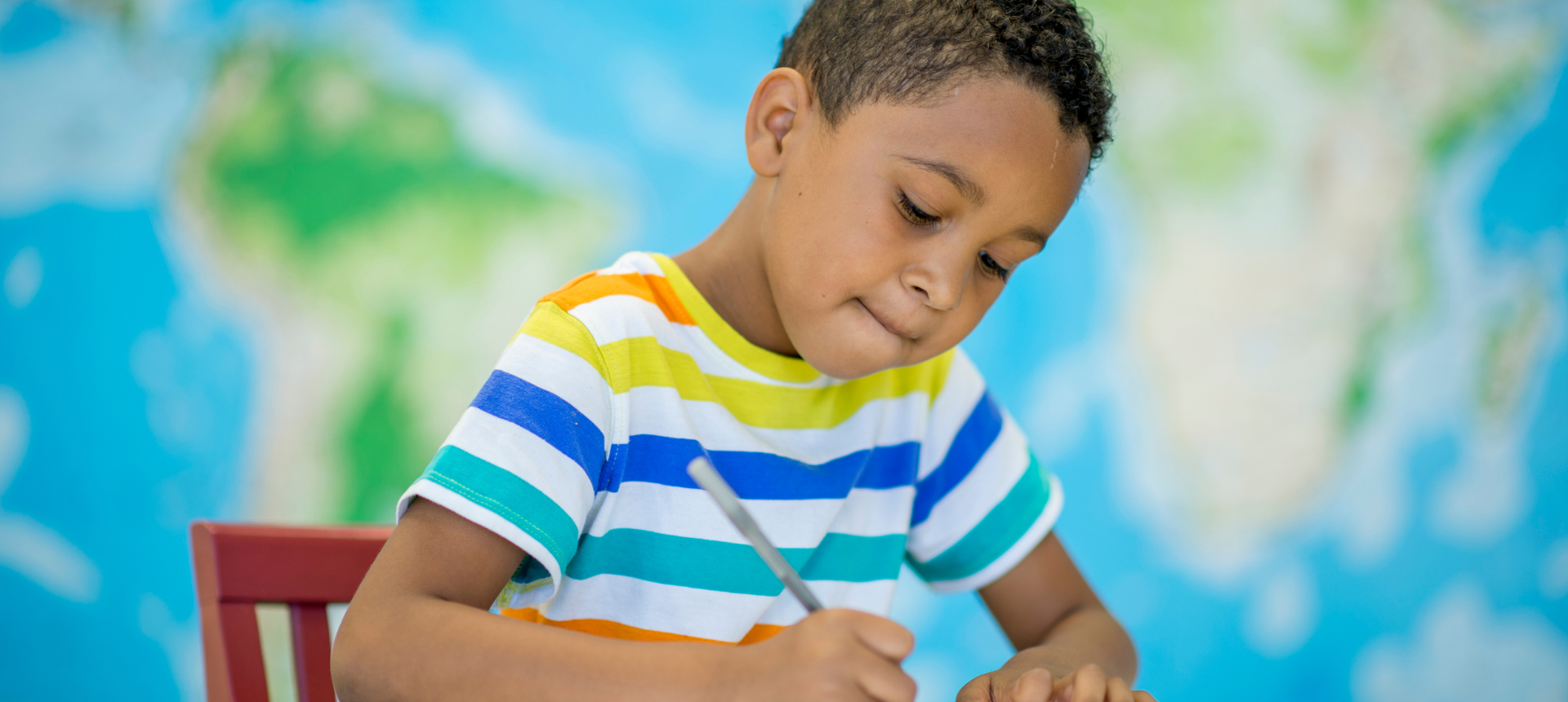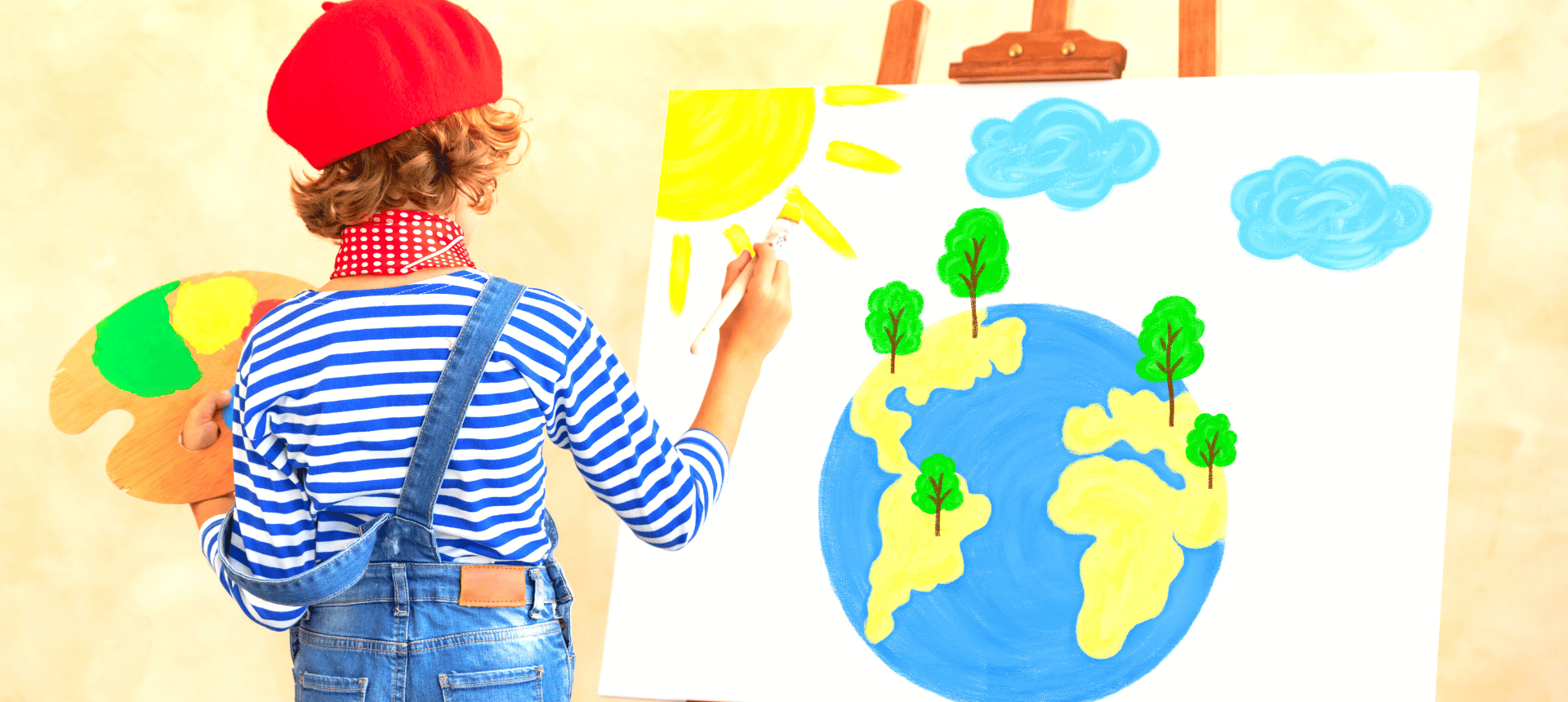When it comes to teaching poetry to children, it can be a mixed bag. Some like it, some don't. Ahead of his Learner Community session on Nonsense Poetry, Outschool teacher Jonny Walker discusses his experiences of teaching poetry as a Poetry Teacher in Residence in a London primary school.
Perceptions
Poetry means different things to different people.
Many of us have positive feelings about poetry. We remember the rhymes we learnt as children, that are now etched deep into our subconscious. We may have words we turn to for comfort, either in individual times of need, or in times of national crisis. They can make us laugh, make us think and make us smile.
And many of us have negative feelings about it. We get annoyed by the hammy performance verses that pebbledash every TV ad-break. We recall the horrid confusion of being tested on poetry as students. We consider it to be a lot of pretentious tosh.
There’s truth on all sides. Poetry is as rich, complex, diverse, surprising and occasionally annoying as life itself.
And do you know what is remarkable … kids tend to feel the same way.
Teaching Poetry to Children
I have the unusual role of being a ‘Poetry Teacher in Residence’ in a London primary school, meaning once a week, I spend the day inviting children to play with words.
And twice a year, I work with a poet friend named Adisa, and we take groups of Year 5 children from East London schools onto a four-day Poetry Retreat in the New Forest.
What have we learnt?
First of all, children’s feelings about poetry - both positive and negative - can all be used to make them into expressive poets. Real authentic poetry needs to have some life in it, and it can be a vehicle through which kids can channel their ideas, joys, loves and frustrations.
We can sometimes lose sight of how difficult it is to construct what - on the surface - looks like a very simple poem. In fact, often the first poems that children encounter are the most challenging to emulate. They have a perfect rhyme scheme, a perfect rhythm and advanced vocabulary: nursery rhymes!
Part of helping children to find joy in poetry involves us dismantling what it takes to make a poem, and playing with the pieces. Rhyme is challenging enough for children who have a limited vocabulary (which is most children, by the cruel fact of them having not lived very long).
And that joy is important. As parents and teachers know, it is phenomenally difficult to get a child to write who does not want to do so. How can we ease them into the process? How can we build the will to write, as well as the skill to write?
Inviting children to enjoy poetry
I like the idea of the invitation to enjoy poetry - reading it, hearing it, writing it, performing it. There must be choice involved, and this makes it a priority for us to make the world of words as enticing as possible.
In my work teaching poetry with children, I have always found that the ‘holy grail’ is the perfect balance between constraint and freedom. If children are given little or no agency as a writer, essentially doing gap-fill and writing a version of a poem someone else has written, then they will be understandably bored. And even if the resulting poem is “good”, they lack a feeling of ownership of it.
But on the other hand, too much freedom is not desirable either. Unless children already have immersed themselves in poetry and love it to pieces, they are going to appreciate a guiding hand. Complete freedom to write whatever they want is not always experienced as liberating… it is experienced as terrifying.
They want to know what the parameters are, and they want freedom within the parameters. This still affords them enormous choice.
Approaches
There are very many ways to get children to experience the feeling of success and accomplishment as a poet.
First, we can ‘lean’ on emulation. This does not mean telling children to write a version of a poem that exists but to just switch a few words out. It is more dynamic than that.
It can involve spending time reading and enjoying a poem, and then inviting the kid to make their own version of it.
Kids - in my experience - interpret this guidance in dazzling ways. Some kids might borrow a character from the poem. Some might borrow the rhyme scheme. Some might take the first few words from each line. And some might interpret the themes and go their own way entirely.
That’s fine.
Another approach - my favourite when teaching - is to rest poetry on a bed of talk. Conversation can be the seed of poetry.
National treasure Michael Rosen is an excellent poet for children to encounter. His poetry is rich in meaning, very relatable for children, and it is of a style that is accessible to them.
His poem ‘Hot Food’ can be shared with children, and we can then start chatting about food stories of home. What does meal time look like for them? Who finishes first? What are their funniest food memories?
Are there any kind of family catchphrases - “Not til you finish your peas, Jonny…” that could be stolen and ‘poemised’?
These kinds of anecdotal stories can be told as free verse poems. Simply, the children need to tell the most story, with the most interesting bits, with as few words as possible.
The challenges
Creating poetry, and appreciating the poetry of others, should be an enjoyable process. But, of course, there are many challenges to this.
One of the biggest hurdles I encounter in my work is convincing children that they have it in them to write something good, once they have absorbed the idea that they are ‘not a writer’, whatever that means.
Good poetry does not need good handwriting, good knowledge of grammar and punctuation rules or even an enormous vocabulary. Of course, as these things develop, poetry offers even more joy. But no child is ruled out of poetry by their challenges.
Some of the children who have perhaps gained the most from our Poetry Retreats have been the children with autism. As well as giving them an additional outlet to share their ideas, on several occasions, these children have used poetry as a way to try to share with their friends what it feels like to be them. Poetry can be a space for self-knowledge and self-celebration.
And a little word of caution: be careful that if you have mixed views on poetry, or negative views, ensure that they don’t leak out. Many adults are ‘wounded writers’, scarred by having struggled to write in the way we wanted to as children.
I often see well-meaning teachers whose negative perceptions of poetry leak into their teaching. It is absolutely fine to explain that you find parts of poetry writing to be a struggle: that’s actually a good thing. But we need to make sure that the kids don’t end up burdened by our writerly baggage, by overstating the frustration.
We want them to see the rewards of a writer’s life as well as the strains.
What belongs in a poem?
Our lives.
I work in the schools with the highest percentage of pupils with English as an Additional Language in the country. In several schools, upwards of 99% of students speak languages other than English at home.
Poetry can harness this as the phenomenal asset it is. Poetry - with its looser sense of convention - can allow kids to mix their languages together, to perhaps intersperse the Urdu, Bengali and Gujarati terms their mother uses with the slang they speak with their friends in school.
And beyond the languages of home, poetry allows all children to bring their experiences of home to the the page. It is deeply enriching for a child to see that their ways of being are validated.
Representation is still an enormous battle when it comes to children’s publishing. Many children will not ever have had the chance to see aspects of their lives reflected on the page - in the UK context, this may be particularly true still for black and Asian children.
Whilst positive steps are being taken, and more fiction and poetry is being published that encapsulates more children’s realities, we can do something immediate ourselves. Encourage the children to represent themselves through their words.
Poetry is a versatile and welcoming form, that lets them all share their ‘take’ on their world. Their loves and hates. Their successes and battles. Their laughter and their tears.
And beneath all of this richness, I think there lies something quite blissfully simple. Talk.
Real talk, between people who care for and respect each other, is the bedrock of children’s self-expression. Through talking and listening, their ideas form, and this social nature of writing intensifies the pleasure of the process.
As the adults who support children to write, we need to be careful not to over-support them. Not to impose. And more than anything, we need to practise skilful listening.
So let’s do away with the weird old idea of the poet wandering lonely on the moors, quill and parchment in hand.
Poetry can be noisy, chatty, raucous and playful, just as it can be sensitive, reflective and calm. The fact that it can be both is the beauty of it.
So let’s write!  Jonny Walker is an Outschool teacher and published author of children's books with HarperCollins and is the author of an upcoming mythology book being published by Oxford University Press. He teaches Greek myths on Outschool, includuding his popular Greek of the Week series, writing and speaking skills, and has his upcoming The Norse Course: A Liking for Viking Myths which starts in 2023.
Jonny Walker is an Outschool teacher and published author of children's books with HarperCollins and is the author of an upcoming mythology book being published by Oxford University Press. He teaches Greek myths on Outschool, includuding his popular Greek of the Week series, writing and speaking skills, and has his upcoming The Norse Course: A Liking for Viking Myths which starts in 2023.
You can find Jonny's classes on Outschool here.











